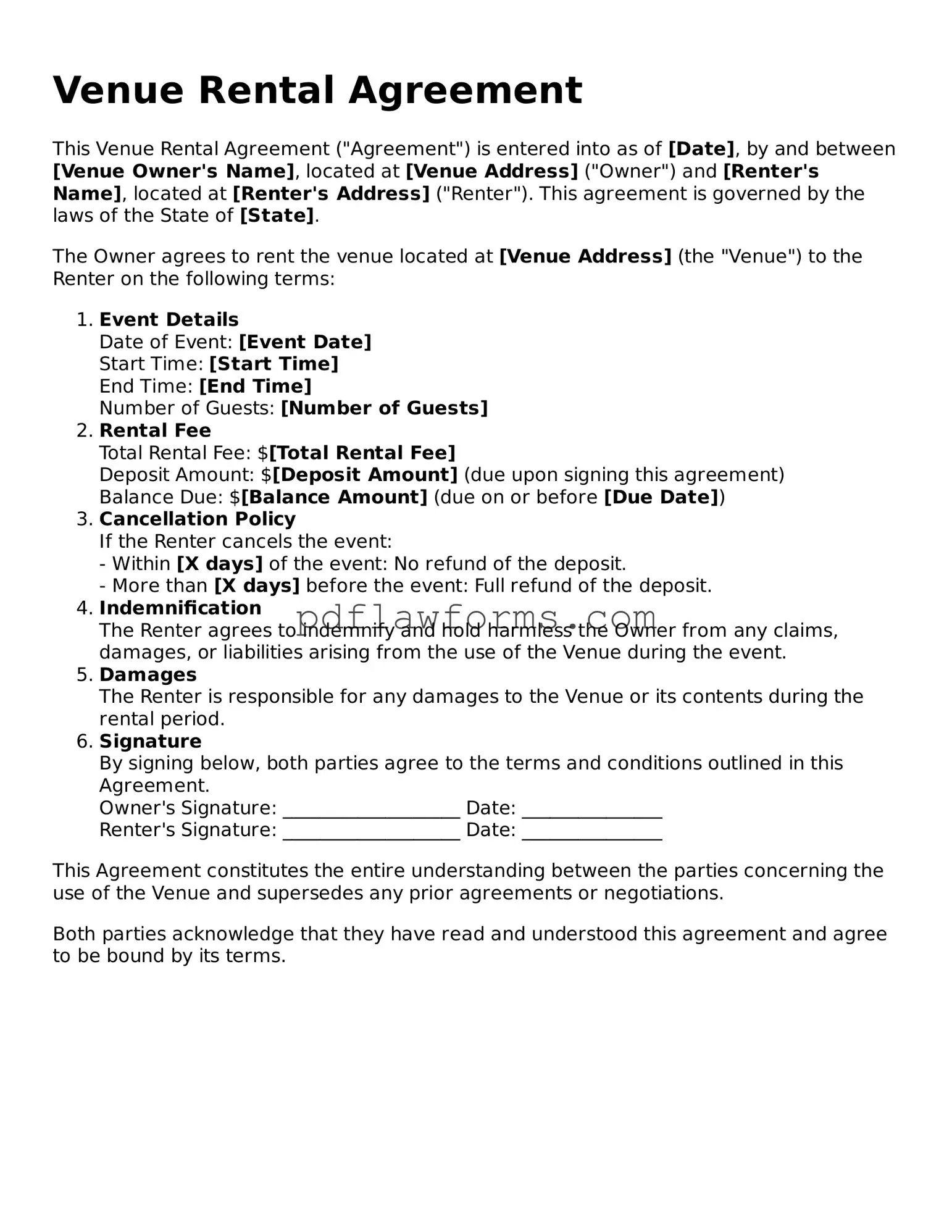Official Venue Rental Agreement Form
A Venue Rental Agreement is a legal document that outlines the terms and conditions for renting a space for events, such as weddings, parties, or corporate gatherings. This agreement serves to protect both the venue owner and the renter by clearly defining responsibilities, payment details, and usage guidelines. To ensure a smooth rental process, consider filling out the form by clicking the button below.
Make My Document Online

Official Venue Rental Agreement Form
Make My Document Online
You’re halfway through — finish the form
Edit and complete Venue Rental Agreement online, then download your file.
Make My Document Online
or
⇩ Venue Rental Agreement PDF
